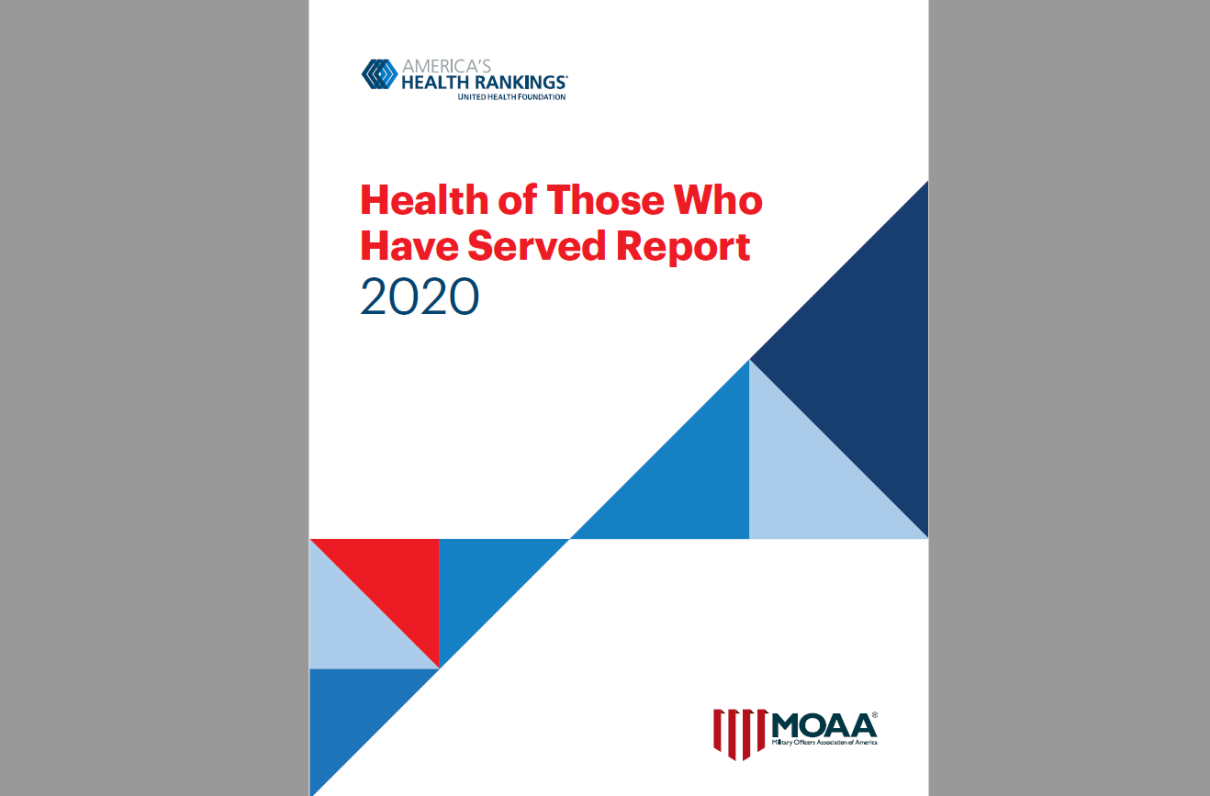Mental health conditions remain a critical concern in the uniformed services community, with a new report showing a greater prevalence of suicidal thoughts, depression, and mental distress within that group than the civilian population.
The 2020 Health of Those Who Have Served Report, produced by the United Health Foundation in partnership with MOAA and released Nov. 11, tracks 29 markers of health based on data from the Centers for Disease Control and Prevention (CDC) and other sources. The report’s topline finding yields good news for those in the uniformed services – 54.6% self-reported their health as very good or excellent, compared with 50% of those who did not serve.
The bulk of the data used in the report comes from 2017-18, so it does not take the effects of the COVID-19 pandemic into account. However, it does point to some problem areas for those who’ve worn the uniform:
- Suicidal thoughts in men and women who’ve served are 1.3 and 1.2 times higher, respectively, than in those who have not.
- Frequent mental distress is found 1.2 times more in men who’ve served than in those who have not (1.3 times for women).
- Those who have served experienced a 23% increase in depression from 2011-12 to 2017-2018, compared with an 11% uptick for civilians.
Concerning findings weren’t limited to mental health: More than 27% of those who have served reported suffering from chronic pain, compared with more than 19% of those who have not. Those who served also saw higher rates of arthritis, cancer, cardiovascular disease and chronic obstructive pulmonary disease (COPD).
“These findings aren’t surprising, but they do reinforce the need to ensure all those who have served maintain access to quality health care, regardless of the agency providing it,” said Karen Ruedisueli, MOAA’s director of government relations for health affairs. “Veterans are in higher risk groups for many conditions, and reports like these help MOAA and other advocates stress the need for continued legislative and financial support for their care.”
[RELATED: More Health Care News From MOAA]
One example: The report’s findings regarding cardiovascular issues and COPD among those who have served show the importance of focusing on veterans when it comes to COVID-19 prevention and treatment, as these and other health conditions are significant risk factors.
“The United Health Foundation will continue to work in collaboration with MOAA to position the report as a key resource for policymakers, thought leaders and third parties for improving the health and health care experience of military service members, veterans, and their families,” the foundation said in materials accompanying the report.
MOAA Knows Why You Serve
We understand the needs and concerns of military families – and we’re here to help you meet life’s challenges along the way. Join MOAA now and get the support you need.

